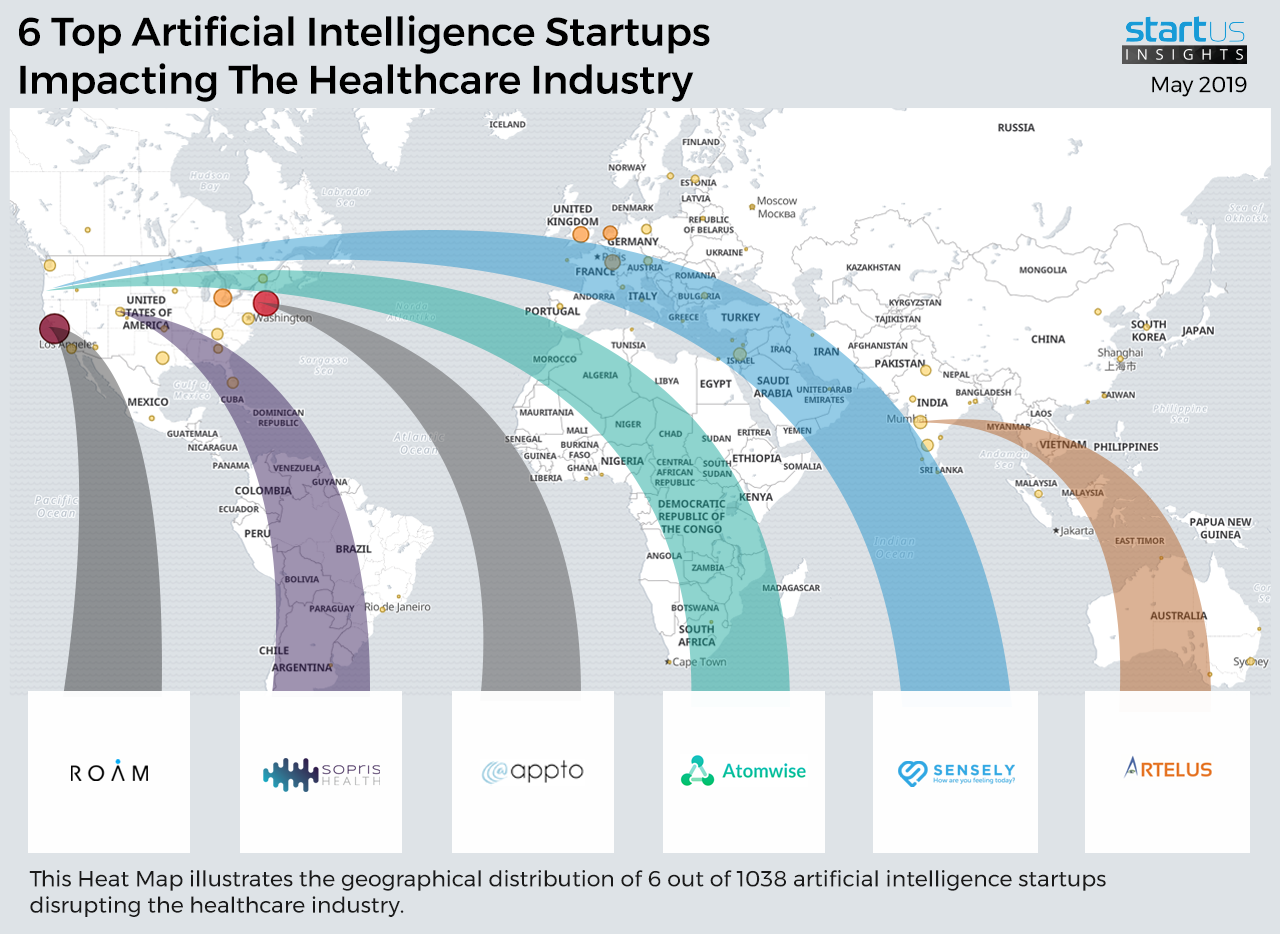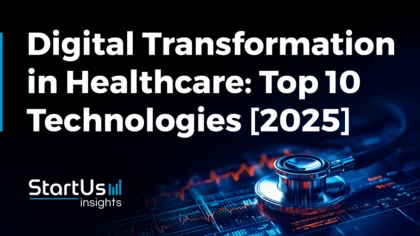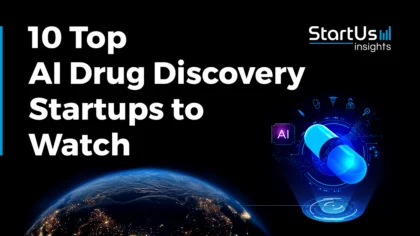Our Innovation Analysts recently looked into emerging technologies and up-and-coming startups in the healthcare industry. As there is a large number of startups working on a wide variety of solutions, we decided to share our insights with you. So, let’s take a look at promising artificial intelligence (AI) solutions.
Heat Map: 6 Top Artificial Intelligence Startups
For our 6 picks of AI startups, we used a data-driven startup scouting approach to identify the most relevant solutions globally. The Global Startup Heat Map below highlights 6 interesting examples out of 1.038 relevant solutions. Depending on your specific needs, your top picks might look entirely different.
Roam Analytics – Medical Records/Data Management
Artificial Intelligence is now at a stage of development when it easily takes over the management of patient medical records and other relevant data. It stores, processes, transforms and indexes data of all sorts, ensuring ease of access.
The US-based company Roam Analytics builds an AI platform for the healthcare industry that uses Natural Language Processing (NLP) to enhance the structure and content of patients’ electronic medical records as well as other AI tools for data analysis and storage.
Sopris Health – Digital Consultation
The development of artificial intelligence already allows to easily automate the collection of symptoms from a patient using a NLP approach, to analyze their medical history, compare the information previously entered into the system including medical knowledge and historical data and, ultimately combine all this information into a digital assistant. Using this approach during a pandemic, for example, helps to maintain hospital and doctor’s office capacity while also minimizing the risk of getting infected or infecting others as the patient doesn’t need to leave their home.
Denver-based Sopris Health offers an AI-powered solution that automates the process of collecting, categorizing, analyzing and documenting patients’ symptoms, clinical history and feedback. Using a smartphone/smartwatch transcribing app, clinicians can focus on inspecting the patient and gathering feedback and insights from them, instead of taking constant notes to form documentation afterward.
Artelus – Precision Medicine (Disease Detection)
While traditional ways of detecting diseases are quite effective, AI creates a completely fresh approach to diagnostics. Relying on historical data and machine learning (ML), it can identify and predict a possible sickness at a very early stage, allowing for a more effective treatment.
Indian Artelus develops an AI-powered solution that can detect diabetic retinopathy (DR) with high accuracy in under three minutes, which is faster than a human professional. The startup also works on the detection of early tuberculosis, breast and lung cancer.
Appto Health – Manual Work Automation
Besides being tasked with high value-added activities, medical professionals constantly spend a lot of time on repetitive tasks such as examining X-Rays, tests, CT scans, along with manual data input and so on. AI addresses these tasks by automating low-skilled work from medics while eliminating the human error factor from the equation.
Appto Health and its AI platform facilitate front-office automation for clinics and healthcare providers, automating patient scheduling, gathering patient feedback and answering organizational questions and more via their phone and messaging AI-powered bots.
Sense.ly – AI Patient Care
Besides mundane medical tasks, Artificial Intelligence in the form of a smart patient assistant is capable of facilitating protracted and mutually-beneficial relationships with patients, especially those with chronic diseases that require long remote care.
Sense.ly and their AI-based virtual nurse Molly helps with prolonged patient monitoring, gathering feedback and symptoms from an individual by using NLP algorithms. It employs machine learning to make suggestions for treatment and much more.
Atomwise – Drug Discovery & Design
Traditional ways of developing new medicine require significant investments of time and money. However, tackling newly-identified diseases is highly dependent on the ability to design and produce drugs as soon as possible. That’s where AI and its deep-learning algorithms along with machine learning are used to cut this time drastically, potentially saving a lot of lives. Artificial intelligence allows, for instance, to study the properties of known medication and drugs, match their action formulas with each other and generate suggestions on how to form new ones that will be more effective or can tackle the previously uncured diseases.
US-based Atomwise employs the above-mentioned approach to analyze existing medications data and study their contents in order to come up with ways of modifying them to create new types of drugs that would be able to cure a given disease.
What About The Other 1.032 Artificial Intelligence Solutions?
While we believe data is key to creating insights it can be easy to be overwhelmed by it. Our ambition is to create a comprehensive overview and provide actionable innovation intelligence for your Proof of Concept (PoC), partnership, or investment targets. The 6 AI startups showcased above are promising examples out of 1.038 we analyzed for this article. To identify the most relevant solutions based on your specific criteria and collaboration strategy, get in touch.


![AI in Healthcare: A Strategic Guide for Industry Leaders [2025-2030]](https://www.startus-insights.com/wp-content/uploads/2025/03/AI-in-Healthcare-SharedImg-StartUs-Insights-noresize-420x236.webp)






